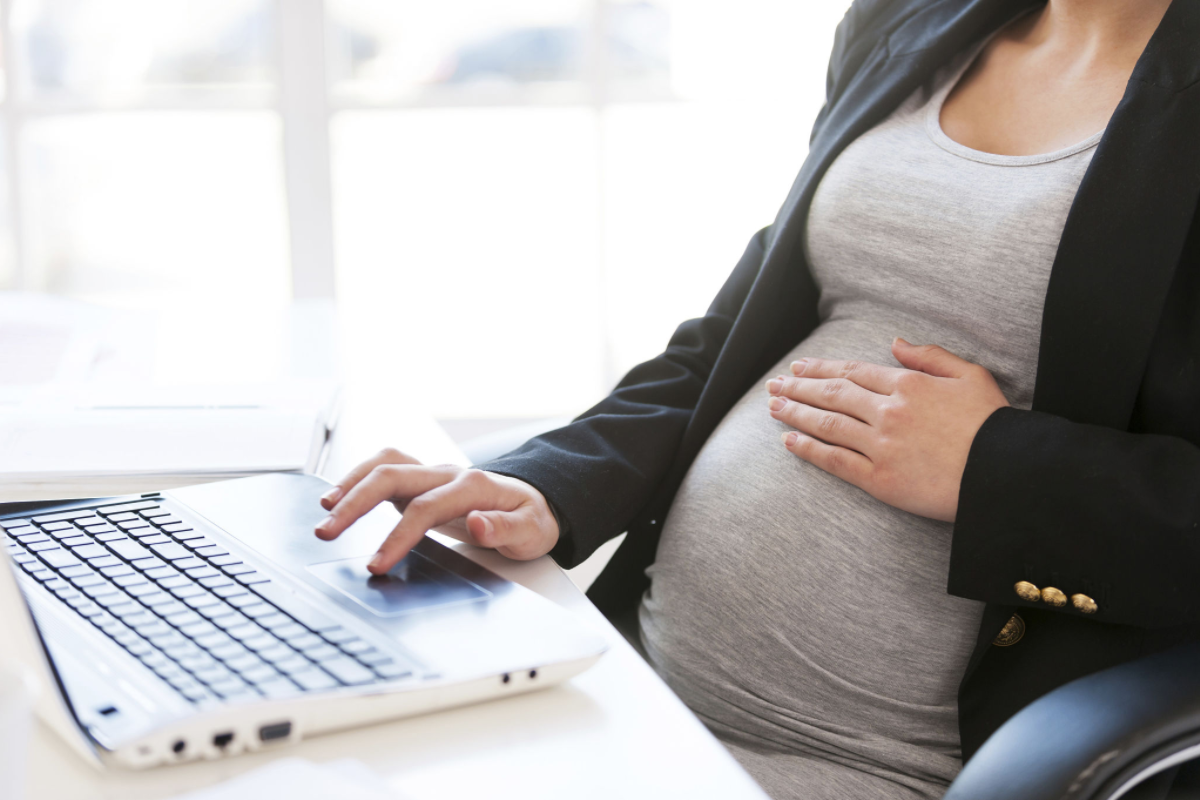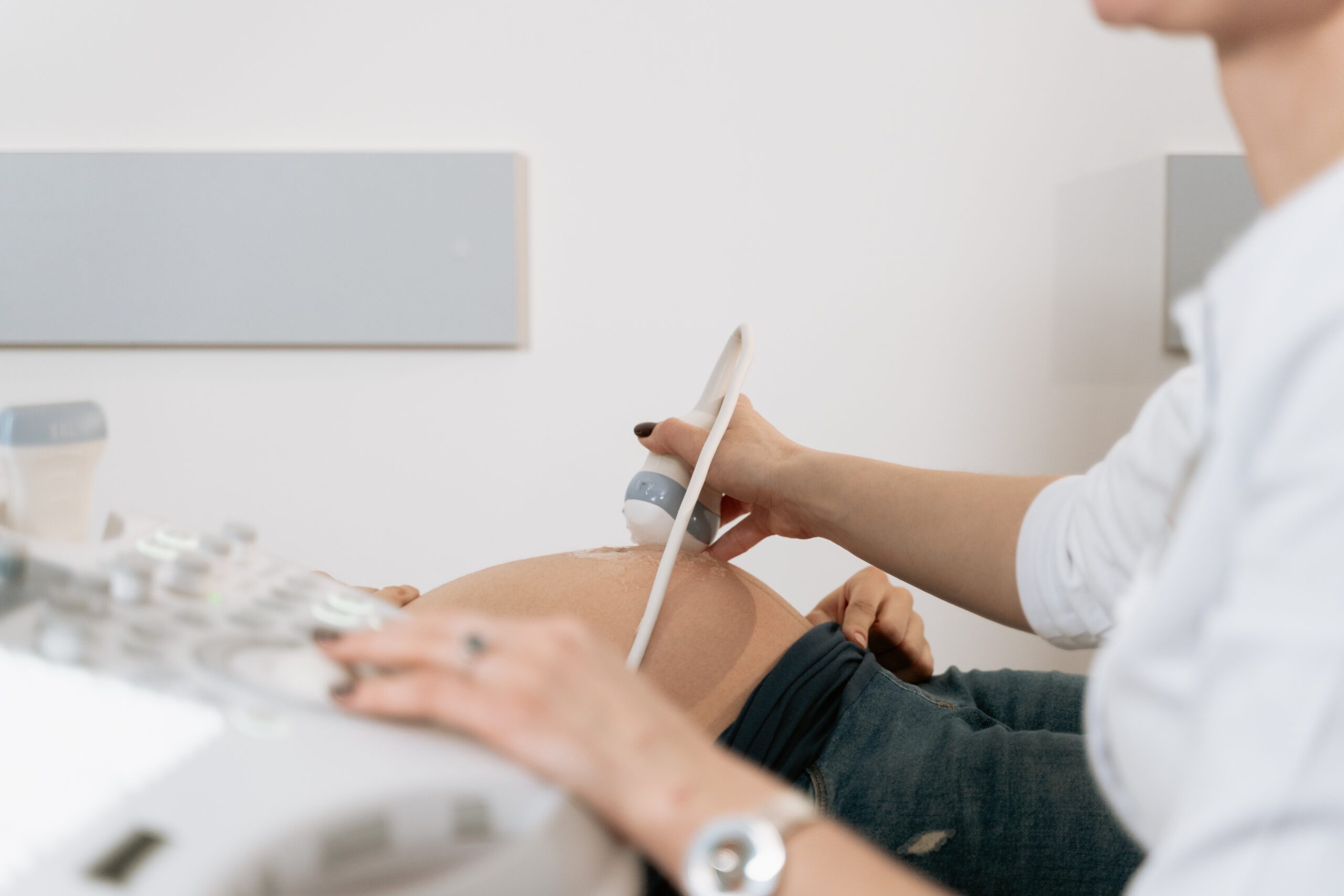At Motherhood Center in Houston, Texas, where families with infants, and expectant mothers find a haven of support and care, we understand the paramount importance of pre-pregnancy planning. As a cherished resource for over two decades, Motherhood Center has been dedicated to providing comprehensive wellness services that empower families to embark on their parenthood journey with confidence and health at the forefront of their minds. In partnership with Motherhood Center, this article delves into a crucial aspect of family planning: reducing radiation exposure for the well-being of both aspiring mothers and their precious future arrivals.
Bringing a new life into the world is a journey filled with dreams, anticipation, and careful preparation. As you embark on the path to parenthood with Motherhood Center by your side, it’s essential to be mindful of the factors that can impact your fertility, the health of your baby, and your well-being. Among these considerations, radiation exposure stands as a silent yet potent threat that requires your attention. Join us in this comprehensive guide as we explore the types of radiation, their effects on fertility and early pregnancy, and the practical measures you can implement to reduce radiation exposure and ensure a healthy start for your growing family.
Types of Radiation
Radiation is all around us, and understanding its sources is crucial in minimizing exposure risks during pre-pregnancy planning. There are two primary categories of radiation: natural and man-made. Each presents its own set of challenges and considerations for those looking to start a family. Here, we’ll explore these categories and their subtypes in detail, providing you with valuable insights into where radiation exposure may be lurking.
Natural Sources of Radiation
- Cosmic Rays and Radon Gas: Cosmic rays, originating from outer space, bombard our planet continuously. While the Earth’s atmosphere provides some protection, exposure to cosmic rays remains unavoidable. Radon gas, on the other hand, is a radioactive gas that emanates naturally from the Earth’s crust. It can accumulate in homes and other enclosed spaces, posing a potential risk if not adequately managed.
- Terrestrial Radiation from Soil and Rocks: The soil and rocks beneath our feet contain trace amounts of radioactive elements, such as uranium and thorium. These substances emit radiation, which can vary based on geological factors. Regions with higher concentrations of these elements may have elevated levels of terrestrial radiation.
Man-Made Sources of Radiation
- Medical Imaging (X-rays, CT Scans): Medical diagnostic procedures like X-rays and CT scans are invaluable tools for healthcare professionals. However, they involve the controlled exposure of the body to ionizing radiation. Expectant mothers and those planning pregnancy must communicate their concerns with healthcare providers to ensure that such procedures are only undertaken when medically necessary, with appropriate shielding and precautions.
- Electronic Devices (Cell Phones, Wi-Fi): In today’s digital age, electronic devices are ubiquitous. Cell phones, Wi-Fi routers, and other wireless technologies emit non-ionizing radiation, which is generally considered safe. Nevertheless, minimizing exposure by following safe practices, such as keeping your phone at a distance when not in use, is a wise choice for individuals planning for parenthood.
Understanding the sources of radiation is the first step toward reducing your exposure. In the following sections, we will delve deeper into the effects of radiation exposure and practical steps you can take to protect your fertility and the health of your future baby.
Effects of Radiation Exposure
Now that we’ve gained insights into the different types of radiation and their sources, let’s delve deeper into the critical topic of how radiation exposure can significantly affect both fertility and early pregnancy. Understanding these effects is not only vital but also empowering for individuals and couples planning to start a family, as it equips them with the knowledge necessary for informed decision-making and risk-reduction strategies.
Impact on Fertility
Radiation exposure, particularly from certain medical procedures and environmental sources, can indeed have a profound and lasting impact on fertility. For women, the ovaries are especially sensitive to radiation. High doses of ionizing radiation can damage the delicate eggs within the ovaries, potentially leading to impaired fertility or, in extreme cases, premature menopause. It’s a concern that emphasizes the importance of radiation awareness and precautionary measures.
For men, radiation exposure is not without consequences either. It can harm sperm production and quality, making the conception process more challenging. The impact on sperm can persist for some time, reinforcing the significance of radiation safety, even well before pregnancy is actively pursued.
Risks During Early Pregnancy
The early stages of pregnancy are a critical period of fetal development, where every cell and organ is forming. During this time, radiation exposure can pose significant risks. Exposure to ionizing radiation, especially in the first trimester, increases the risk of birth defects, developmental abnormalities, and the heartbreaking possibility of miscarriage. It’s essential to recognize that the developing fetus is most vulnerable to the harmful effects of radiation during this early phase, making avoidance of unnecessary exposure an absolute priority for expectant mothers.
Long-Term Developmental Consequences
Beyond the immediate concerns lies a broader and more far-reaching aspect of radiation exposure during pre-pregnancy planning – the potential for long-term developmental consequences for your child. Research suggests that children exposed to high levels of radiation in utero may face an increased risk of cancer, cognitive impairments, and other health issues later in life. While these risks may not be immediately apparent, they underscore the importance of taking proactive and precautionary measures to reduce radiation exposure before conception.
By gaining a comprehensive understanding of how radiation exposure can affect fertility, early pregnancy, and the lifelong health of your child, you are equipped with the knowledge to make informed choices.
Pre-Pregnancy Precautions
As you embark on the path to parenthood, prioritizing pre-pregnancy precautions becomes paramount to safeguard both your fertility and the health of your future baby. Motherhood Center understands the significance of this phase in your life journey and is here to guide you through essential steps to minimize radiation exposure before conception.
Consultation with a Healthcare Provider
Before attempting to conceive, it’s advisable to schedule a consultation with a healthcare provider, ideally a reproductive specialist or obstetrician. This step is particularly vital if you have a history of medical conditions that may involve radiation exposure, such as past surgeries or cancer treatments. Your healthcare provider can assess your health, discuss any potential risks, and offer guidance on managing radiation exposure throughout your pre-pregnancy planning.
Evaluating Workplace Radiation Exposure
For those who work in environments where radiation exposure is a possibility, diligent assessment of workplace conditions is essential. Industries like healthcare, nuclear energy, and manufacturing may involve higher radiation risks. Discuss your concerns with your employer and occupational health professionals to implement safety measures, such as wearing protective gear and ensuring that radiation sources are adequately shielded.
Minimizing Exposure from Medical Procedures
While medical imaging can be necessary, it’s crucial to communicate your pregnancy plans with your healthcare provider. They can help you evaluate the necessity of such procedures and, if required, ensure that they are conducted with appropriate precautions. For instance, alternative imaging methods with lower radiation doses may be considered, or shielding techniques may be employed to protect the reproductive organs.
Environmental and Lifestyle Adjustments
Beyond the workplace and medical settings, everyday life presents opportunities to minimize radiation exposure. Motherhood Center emphasizes the importance of adopting healthy habits and lifestyle adjustments during pre-pregnancy planning. This includes maintaining a safe distance from electronic devices, such as laptops and cell phones, when not in use, as well as being mindful of your exposure to Wi-Fi signals and electromagnetic fields.
By taking proactive pre-pregnancy precautions, you can create a radiation-aware environment that sets the stage for a healthy conception and the well-being of your future child.
Lifestyle Adjustments
In our modern world, electronic devices are an integral part of daily life. While they offer convenience and connectivity, they also emit electromagnetic fields and non-ionizing radiation. Taking steps to minimize your exposure during pre-pregnancy planning is a wise choice for both your fertility and your baby’s health. Here are some lifestyle adjustments you can implement:
Safe Practices with Electronic Devices
- Cell Phone Usage: Keep your cell phone at a distance when not in use. Avoid carrying it in pockets close to your reproductive organs. Use speakerphone or wired headsets for calls to maintain distance from your body.
- Laptop and Tablets: Place laptops and tablets on surfaces rather than your lap, and use external keyboards and mice. Laptops emit heat and low-level radiation, so maintaining a safe distance is advisable.
- Electromagnetic Fields: Be mindful of devices that emit electromagnetic fields (EMFs), such as Wi-Fi routers. Position these devices away from frequently used spaces, like bedrooms, and consider turning them off when not in use, especially at night.
Reducing Exposure from Everyday Sources
- Household Appliances: Some household appliances, like microwave ovens and cordless phones, emit low levels of radiation. Maintain a safe distance and limit exposure time where possible. When purchasing new appliances, consider low-radiation options.
- Pregnancy Belly Bands: Specialized pregnancy belly bands with built-in radiation shielding are available in the market. These can be worn as a precautionary measure to protect your developing baby from everyday radiation sources.
- Radiation-Blocking Clothing: Some clothing is designed with radiation-blocking materials. These garments are comfortable and discreet and can provide added protection during pregnancy.
By adopting these lifestyle adjustments, you can significantly reduce your exposure to non-ionizing radiation from everyday electronic devices. These simple yet effective measures contribute to a safer and healthier environment for your pre-pregnancy planning and the well-being of your future family.
Dietary Considerations
Your pre-pregnancy diet plays a pivotal role in ensuring not only your well-being but also the health of your future baby. While radiation exposure from food is typically low, being mindful of your dietary choices can help minimize potential risks. Motherhood Center encourages you to embrace a balanced, low-radiation diet to support your pre-pregnancy planning.
Foods with Natural Radioactivity
Certain foods contain naturally occurring radioactive elements, such as potassium-40 and radium-226. While the radiation levels in these foods are generally low, understanding their presence can help you make informed dietary choices.
- Bananas: Bananas contain potassium-40, a radioactive isotope. However, the radiation dose from eating bananas is minimal and not a cause for concern. The nutritional benefits of potassium outweigh any radiation risk.
- Brazil Nuts: These nuts are rich in selenium, which may contain traces of radium-226. Again, the radiation risk is low, and the nutritional value of Brazil nuts makes them a healthy choice.
Benefits of a Balanced, Low-Radiation Diet
- Fruits and Vegetables: Incorporate a variety of fruits and vegetables into your diet. These foods are not only rich in essential nutrients but also low in radiation risk. Washing them thoroughly can further reduce any potential contaminants.
- Lean Proteins: Choose lean sources of protein, such as poultry, fish, and plant-based options. These protein sources generally have lower radiation levels compared to fatty cuts of meat.
- Dairy Products: Opt for low-fat or fat-free dairy products, as they tend to have lower radiation levels than their high-fat counterparts.
Importance of Prenatal Vitamins
In addition to a balanced diet, prenatal vitamins are a valuable supplement during pre-pregnancy planning. They help ensure that you receive essential nutrients like folic acid, iron, and calcium, which are crucial for a healthy pregnancy. By maintaining good nutrition and taking prenatal vitamins as recommended by your healthcare provider, you can further enhance your readiness for a healthy conception.
By making thoughtful dietary choices and embracing a balanced, low-radiation diet, you’re taking proactive steps to support your fertility and pave the way for a healthy pregnancy. In the following section, we’ll delve into alternative medical imaging options, allowing you to explore safer alternatives for pre-pregnancy planning.
Alternative Medical Imaging
As you embark on your pre-pregnancy journey, one aspect of radiation exposure that may concern you is medical imaging. While diagnostic imaging is essential for healthcare, there are alternative approaches that can help you minimize radiation exposure without compromising your health or that of your potential baby. In this section, we’ll explore safer imaging options to consider during your pre-pregnancy planning.
Choosing Low-Radiation Imaging Alternatives
- Ultrasound: Ultrasound is a widely used imaging technique that relies on sound waves rather than ionizing radiation. It is considered safe for both expectant mothers and those planning to conceive. Obstetricians often use ultrasound to monitor reproductive health and fetal development.
- Magnetic Resonance Imaging (MRI): MRI uses a magnetic field and radio waves to create detailed images of the body’s internal structures. It does not involve ionizing radiation, making it a safe option for pre-pregnancy planning when medically necessary.
- Doppler Ultrasound: Doppler ultrasound is a specialized form of ultrasound that assesses blood flow. It can be employed to evaluate blood flow to the ovaries, uterus, and other reproductive organs, aiding in pre-pregnancy assessments.
Communicating with Healthcare Providers
Open and honest communication with your healthcare provider is paramount when considering alternative imaging options. If a medical procedure or imaging is necessary during your pre-pregnancy planning phase, inform your provider of your intentions to conceive. They can tailor the approach, selecting low-radiation or radiation-free alternatives whenever possible. Your healthcare provider’s expertise and guidance are invaluable in ensuring your safety and the health of your potential baby.
By actively seeking low-radiation or radiation-free imaging alternatives, you can reduce your radiation exposure risk while receiving essential medical assessments. Your commitment to informed choices during pre-pregnancy planning aligns with a holistic approach to wellness.
Conclusion
In your pursuit of a healthy and joyful journey into parenthood, it’s evident that minimizing radiation exposure during pre-pregnancy planning is a crucial consideration. We’ve explored the various facets of this topic, from understanding the types of radiation to its potential effects on fertility, early pregnancy, and the long-term well-being of your child.
Through careful pre-pregnancy precautions, lifestyle adjustments, dietary considerations, and a thoughtful selection of low-radiation medical imaging alternatives, you have the power to create a safe and nurturing environment for your growing family.
At the Motherhood Center, we understand the importance of comprehensive wellness, and we’re here to support you every step of the way. Our commitment to empowering families and expectant mothers spans over two decades. Whether you’re seeking pregnancy and parenting education classes, yoga and fitness classes, massage services, doula and childcare services, or virtual classes for those unable to attend in person, we offer a wealth of resources to cater to your unique needs.
Your journey into parenthood is a profound and transformative experience, and we invite you to reach out to the Motherhood Center for more information. Our dedicated team is here to provide guidance, care, and support to ensure that your pre-pregnancy planning and the entirety of your parenting journey are filled with confidence, health, and happiness. Contact us today to embark on this incredible adventure with the knowledge that you have a trusted partner by your side.
FAQs
Is it safe to use a cell phone during pregnancy?
Yes, it is generally safe to use a cell phone during pregnancy. Cell phones emit non-ionizing radiation, which is considered low-risk. However, to minimize exposure, it’s advisable to keep your cell phone at a distance when not in use, use speakerphone or wired headsets for calls, and avoid carrying it in pockets close to your reproductive organs.
How can I minimize radiation exposure at work?
To reduce radiation exposure in the workplace, start by discussing your concerns with your employer. If your job involves potential radiation exposure, ensure that you are provided with appropriate protective gear and that radiation sources are adequately shielded. Consult with occupational health professionals to implement safety measures specific to your workplace.
Are there any dietary changes I should make to reduce radiation exposure?
While radiation exposure from food is generally low, you can make informed dietary choices. Incorporate a variety of fruits, vegetables, and lean proteins into your diet. These foods are low in radiation risk. Additionally, consider taking prenatal vitamins to ensure you receive essential nutrients for a healthy pregnancy.
What imaging options are safer for pregnant women?
Safer imaging options for pregnant women include ultrasound and magnetic resonance imaging (MRI). Ultrasound uses sound waves and is considered safe throughout pregnancy. MRI uses magnetic fields and radio waves, avoiding ionizing radiation. Communicate your pregnancy plans with your healthcare provider to select the most appropriate imaging method when needed.
Is radiation exposure from air travel a concern during pregnancy?
Radiation exposure from commercial air travel is generally low and considered safe for pregnant women. However, if you have concerns, consult your healthcare provider before planning long flights. They can provide guidance based on your circumstances and help you make informed decisions regarding travel during pregnancy.






